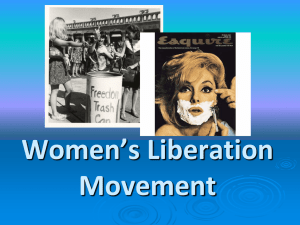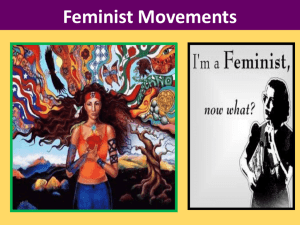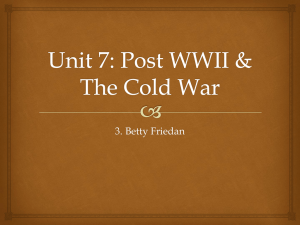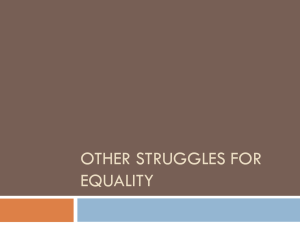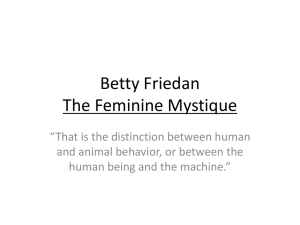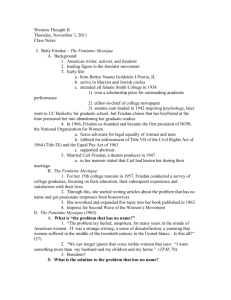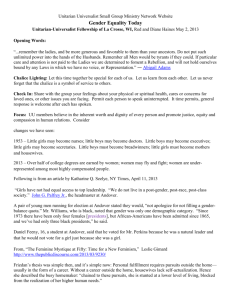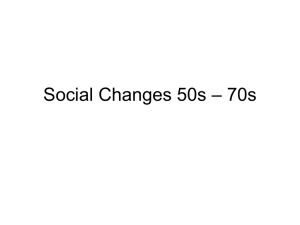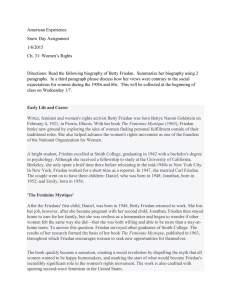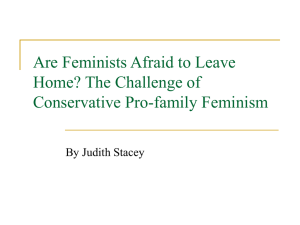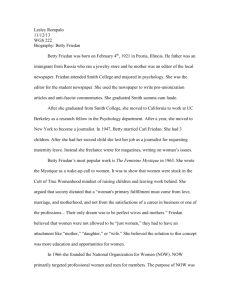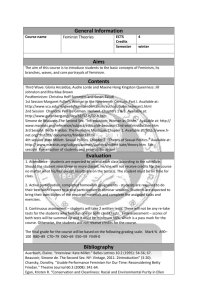The Cult of Mary
advertisement
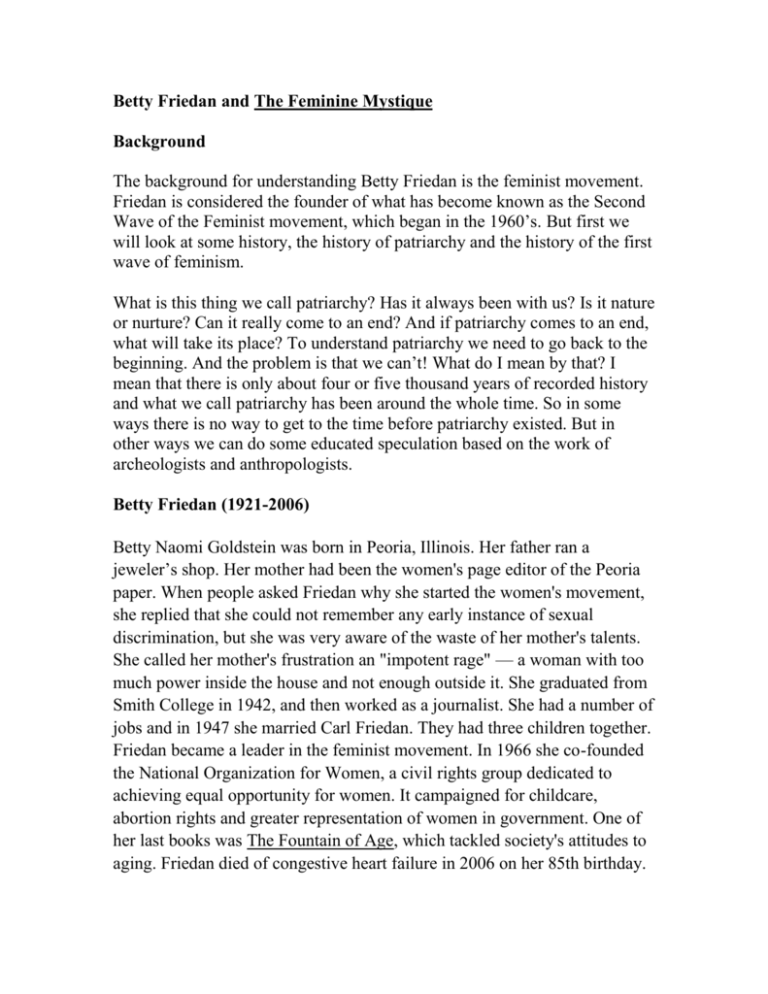
Betty Friedan and The Feminine Mystique Background The background for understanding Betty Friedan is the feminist movement. Friedan is considered the founder of what has become known as the Second Wave of the Feminist movement, which began in the 1960’s. But first we will look at some history, the history of patriarchy and the history of the first wave of feminism. What is this thing we call patriarchy? Has it always been with us? Is it nature or nurture? Can it really come to an end? And if patriarchy comes to an end, what will take its place? To understand patriarchy we need to go back to the beginning. And the problem is that we can’t! What do I mean by that? I mean that there is only about four or five thousand years of recorded history and what we call patriarchy has been around the whole time. So in some ways there is no way to get to the time before patriarchy existed. But in other ways we can do some educated speculation based on the work of archeologists and anthropologists. Betty Friedan (1921-2006) Betty Naomi Goldstein was born in Peoria, Illinois. Her father ran a jeweler’s shop. Her mother had been the women's page editor of the Peoria paper. When people asked Friedan why she started the women's movement, she replied that she could not remember any early instance of sexual discrimination, but she was very aware of the waste of her mother's talents. She called her mother's frustration an "impotent rage" — a woman with too much power inside the house and not enough outside it. She graduated from Smith College in 1942, and then worked as a journalist. She had a number of jobs and in 1947 she married Carl Friedan. They had three children together. Friedan became a leader in the feminist movement. In 1966 she co-founded the National Organization for Women, a civil rights group dedicated to achieving equal opportunity for women. It campaigned for childcare, abortion rights and greater representation of women in government. One of her last books was The Fountain of Age, which tackled society's attitudes to aging. Friedan died of congestive heart failure in 2006 on her 85th birthday. The Feminine Mystique The Feminine Mystique was published 44 years ago in 1963. How much has changed since then and how much of this change can be attributed to this one book is unknown, but unquestioned. It is a book that changed millions of lives. So what is the feminine mystique and what was Friedan writing about? It is an image of women that Friedan said created the “the problem that has no name.” What was this image? It was the image of women that defined them in terms of only their sexual relationship to men, as daughters, wives, and mothers. The world is different today. A woman can be anything she chooses. One striking example of this is to watch something like the Olympics on television. It was all about men in the past, but now you can see women participating in all sorts of sports. This is a symbol of how quickly things have changed. Just forty-four years ago none of this would have seemed possible. Friedan saw a new emergence of the feminine mystique in the equation of feminism with the loss of family values, the higher divorce rate, and the number of single parent families. She said the equation is a false one. The emergence of feminism may have played a role in the loss of traditional family life, but that is not the fault of liberating women, but of a system that sacrifices women’s needs for the sake of the system. Summary Betty Friedan found that women during the 1950’s and the 1960’s were living lives of quiet desperation, lives that lacked creativity and meaning. Friedan gave women a new chance to see themselves as people rather than simply in the light of their relationships to men. Her issue was not that the traditional motherhood role is wrong; but that women should not be limited to it. Friedan also made a strong case in her 1996 new introduction to The Feminine Mystique that the issue should no longer be seen as men versus women. That issue has become irrelevant. When men and women work together as a team rather than against each other they will have the time and energy to fight the forces that are really causing family trouble. Men and women have too much at stake that they need to struggle with, a struggle that can only be won when they work together.
